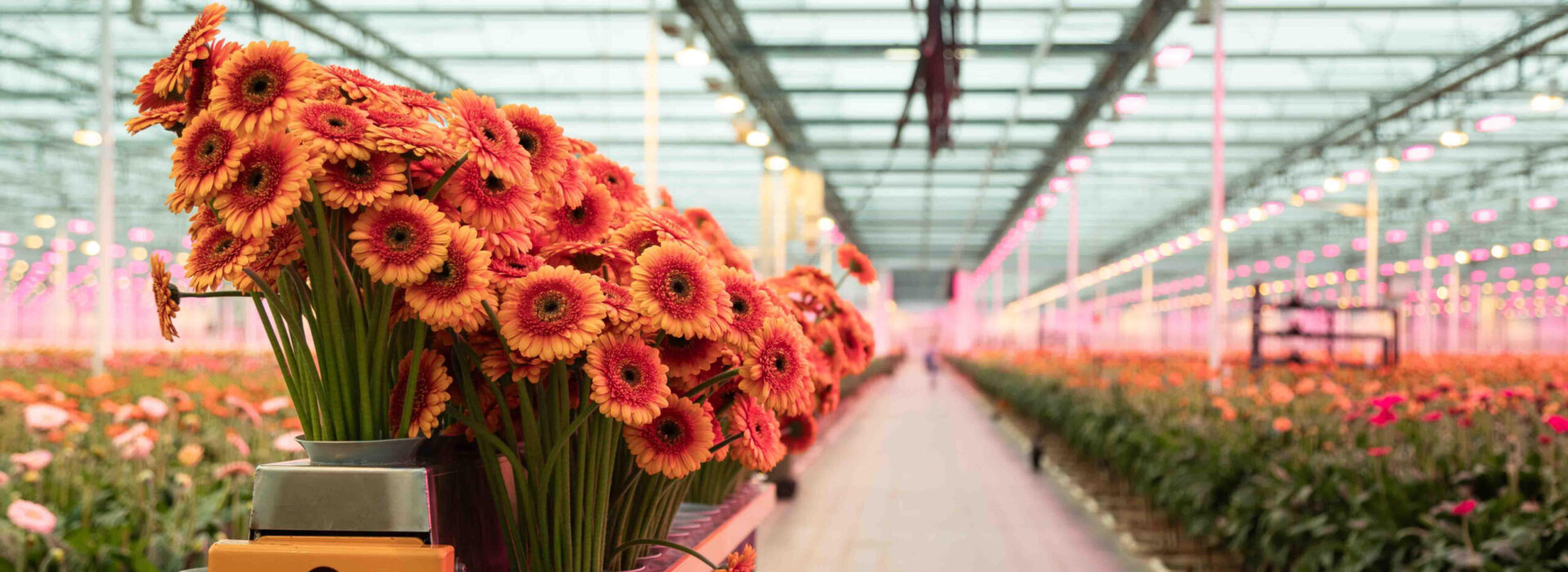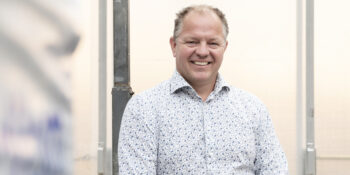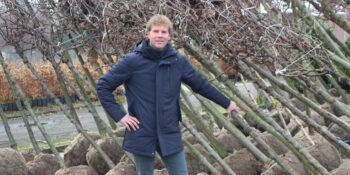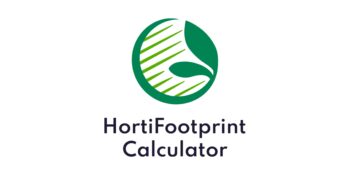Oudijk Gerbera was established in 1975. The family business grows small-flowered gerberas in various colours on 7 hectares. “Our Germinis go to the traditional wholesaler. They demand consistently high quality, in summer and winter. To meet this demand, we work with the very latest technology,” says managing director Dirk-Jan Oudijk.

Dirk-Jan Oudijk (left)
Oudijk is proud that his company is a pioneer when it comes to sustainability. “Five years ago, we were one of the first nurseries to install dehumidifiers. They have enabled us to cut our gas usage by 40 percent and improve the climate in the greenhouse.”
Growing with low energy usage has long been a priority at Oudijk Gerbera. “We are proud of the gas savings that the dehumidifiers deliver, but of course they also use energy. So three years ago, we invested in LED lighting: that way, we get the same amount of light with only half the lights on.”
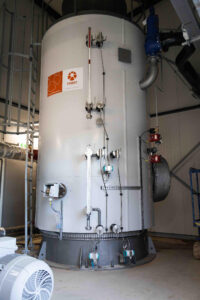
E-boiler
E-boiler for sustainable heat with green electricity
In addition to LED lighting and solar panels, which are now common throughout the horticulture sector, Oudijk is proud of another unique feature the company boasts: “Since 2023, we have had a 10 MW e-boiler that runs on 10 kV. That’s pretty unique in ornamental horticulture, and we may even be the first and only nursery to have one. The e-boiler can produce sustainable heat in windy and sunny weather. We hope that it will deliver us substantial savings on gas.”
The e-boiler is used by grid operator TenneT to feed electricity back into the grid to prevent overloading on residential connections. Depending on the voltage, TenneT switches the e-boiler on or off, and Oudijk receives payment for its output. “So besides delivering savings on gas, this is helping us to recoup that substantial investment. Although it’s not just about the money: customers are demanding sustainability and a lower CO2 footprint, and of course we want the best for the planet ourselves, too.”
Keeping caterpillars at bay with netting
Oudijk Gerbera is also increasingly turning to biological pest control. “The entire operation is kitted out with insect netting now, which enables us to use even more biocontrols. Along with banker plants that provide a standing army of beneficial insects, this ensures that we can also grow responsibly in the future.”
One of the biggest challenges in gerbera production are caterpillars. “They are relatively easy to keep out with netting because the moths can’t fly through it. Apart from that, we also have to contend with the usual pests, which are easy to control with biology.”

Sustainability essential for a viable future
To clearly communicate these sustainability measures to the outside world, Oudijk Gerbera has several MPS certifications: MPS-A, MPS-GAP and MPS-Socially Qualified. Oudijk would like to share some feedback on this: “The portal was updated two years ago, but I actually find it less user-friendly now – and I wonder if the fees couldn’t be a bit lower.”
Oudijk also has a message for other growers: “The only way to ensure a viable future is through sustainability. Both for our sector and our planet.”
